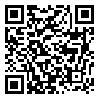

BibTeX | RIS | EndNote | Medlars | ProCite | Reference Manager | RefWorks
Send citation to:
URL: http://hcjournal.arums.ac.ir/article-1-378-en.html
Background & objectives: Thalassemia accompanies with serious side effects in children and can make them fatigue, weak and afflicted during childhood and adolescence. Besides increasing the complexity and difficulty of patients&rsquo condition, self-efficacy would be decreased. Storytelling is a method of observational learning that can promote self-efficacy. This study was performed to determine the effect of storytelling on self-efficacy in children with Thalassemia aged 7-12 Years.
Methods: In this randomized clinical trial 60 children with thalassemia referred to pediatric clinics in the city of Mashhad, Iran in 2014 was randomly allocated to control and intervention (storytelling) groups. In the intervention group, stories were read for one hour in eight sessions. Control group did not receive any intervention. Self-Efficacy Questionnaire for Children (SEQ-C) was completed by the children in three stages: before, after and 1 month after the intervention. Data were analyzed by independent t-test and repeated measures ANOVA in SPSS (v.16).
Results: Based on data analysis, self-efficacy and its dimensions were significantly different between the two groups (p>0.001) and self efficacy in storytelling group increased significantly.
Conclusion: The results emphasized on the effectiveness of storytelling on general self-efficacy in children with thalassemia. This study introduces storytelling as an interesting technique to improve self-efficacy of children in the child friendly hospitals.
| Rights and permissions | |
 |
This work is licensed under a Creative Commons Attribution-NonCommercial 4.0 International License. |


